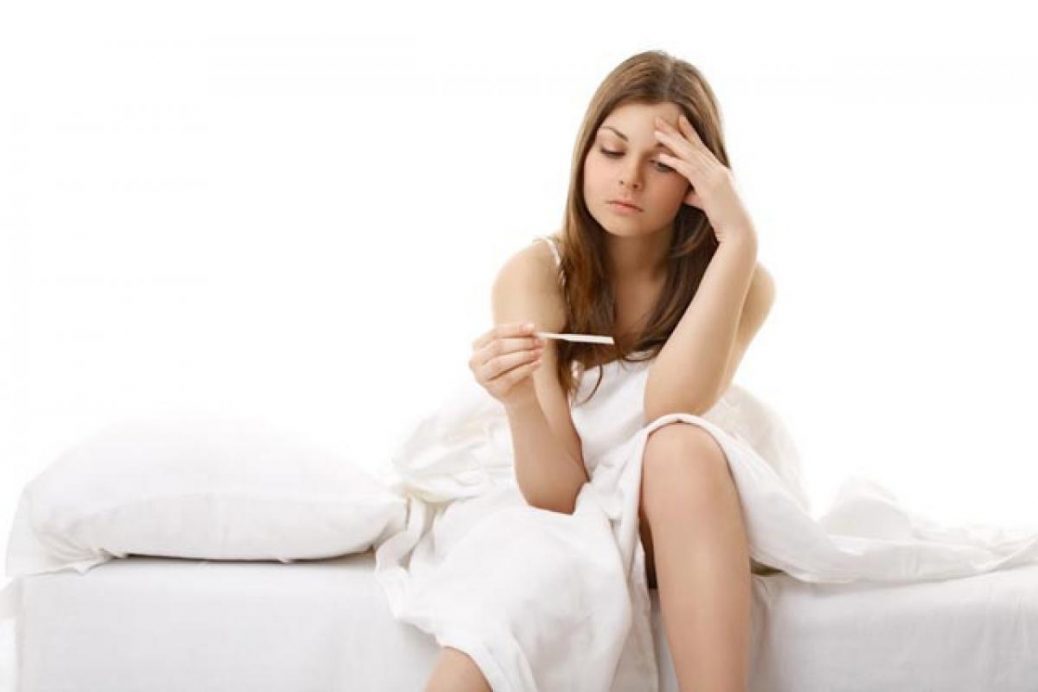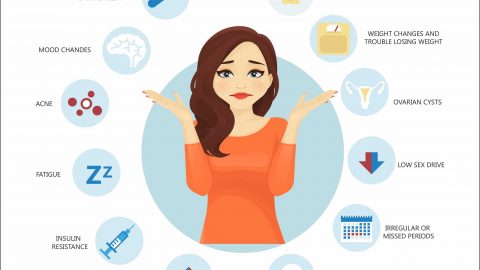Infertility in PCOS?
How can you manage to treat infertility in PCOS?
Women with PCOS face several issues. Out of all these, one of the major issues is infertility or ‘subfertility’ where it can take longer to conceive, or she can also need further medical aid to fertilize. There are several things a woman can do to treat infertility in PCOS and increase the chances of being pregnant. 60% of women with PCOS can fertilize without medical help.
Increased androgens (‘male’ hormones such as testosterone) and increased insulin levels can disturb the menstrual cycle and avert the process of ovulation (the production of an egg from the ovary). When an egg is not produced regularly, it is known as anovulation. Ovulation can cease entirely or it can occur on an irregular basis. This can make the procedure of natural fertilization more difficult for women with PCOS, and some women might also have a risk of miscarriage. Though, this does not mean all women face the problem of infertility in PCOS.
There are many reasons for infertility in PCOS because od which a woman with PCOS may have difficulty becoming pregnant, in such cases see a doctor to diagnose if PCOS is affecting your fertility.
Weight management
Reduction in weight can assist a woman with infertility in PCOS, so if your weight exceeds a limit, weight management and physical exercise is a must and the first treatment option for a woman with PCOS. Even a 5-10% weight loss can increase the recovery chances of infertility in PCOS by 25%.
To help you lose weight:
- Reduce your carb intake: – Reducing your carb intake can help you manage the impact on your insulin levels.
- Consume excessive fiber: – A diet high in fiber can help in reducing the insulin resistance, body weight, and excess body fat in a woman with PCOS.
- Eat enough protein: – Higher intake of protein can be a helping hand for weight loss, especially for women with PCOS consuming healthy items that have high-protein like eggs, nuts, and seafood in your diet can be very helpful.
- Regular exercise is the best strategy for weight loss: – Both cardio and weight-training exercises can help women with PCOS drop body fat and improve insulin sensitivity. And on average if a woman with PCOS does good exercise, eats healthy one can lose 2 kilos a month easily. So, if a woman with PCOS has to lose 7-8 kilos of weight, within 3-4 months she can easily lose that extra weight to recover the problem of infertility in PCOS
- Practice mindful eating: – Mindful eating helps in promoting consciousness of core eating cues and also promotes weight loss. It can be helpful for women with PCOS, who are likely to experience eating disorders.
Monitoring ovulation
In a menstrual cycle of a woman, there are days when pregnancy is conceivable. This period is usually around the mid of the cycle. If ovulation has happened a ‘fertile window’ makes an opportunity to conceive. To improve the chance of fertility, monitoring ovulation needs to be done time-time and sexual intercourse to accord and happen around the same time of ovulation. To improve infertility in PCOS and increase the chances of becoming pregnant wait for the following signs which can help you identify that ovulation is happening or about to occur:
- Mucus changes before the time of ovulation, the vagina’s mucus is slick and slippery around the time of ovulation.
- Women experience abdominal pain during ovulation. This pain can be common or occur only on one side of the abdomen.
- Premenstrual symptoms such as:
- breast tenderness
- abdominal swelling
- mood swings
Ovulation induction
If lifestyle and weight loss have not helped improve your fertility after three to six months, then you should see a fertility specialist for treatment to boost the ovulation. Ovulation induction treatment is intended to stimulate the ovary to intensify the production of eggs. If a woman with PCOS has got erratic periods, then ovulation-inducing agents can help her ovulating every month to improve the problem of infertility in PCOS. And for the woman who ovulates normally releases one egg at a time, But, when these ovulation-inducing agents are given, then she can release more than 1 egg. That can increase her chances of getting pregnant. Ovulation induction customs tablets and injections. After that ultrasound and blood tests are done to know the best time to trigger ovulation. Once ovulation has been triggered, sperm is introduced either by sexual intercourse or inter-uterine fertilization when collected sperm is sited directly into the uterus. The process of ovulation induction is not suggested for women with PCOS who have a BMI of more than 35.
Hormonal Imbalance:
The existence of high male hormones or insulin levels should be brought under control by using insulin-sensitizing medication or anti-male-hormone medication. While consuming these medications women with PCOS should prevent getting pregnant because these medications can cause harm to the baby if the mother gets pregnant during that period. These medications help in correcting the hormonal imbalance and vitamin deficiency. Because a woman with PCOS usually tends to have a low vitamin D and a low vitamin B 12. So, by consuming these medications all these issues can be corrected.
Intrauterine insemination:
In this procedure, the sperm samples are collected and sanitized, and collect the active sperms put it through the very fine catheter into the uterus. Mainly in this process, the sperms and the eggs are brought closer, which increases the chances of fertility and can easily conceive. This procedure is not particularly meant for a woman with PCOS or a woman who has the problem of infertility in PCOS. This procedure is tried 3-4 times in a woman and if it does not work then the other way forward is the IVF treatment.
IVF (In-Vitro-Fertilization)
In this procedure, injections are given to stimulate egg production. And then the released eggs are removed from the ovaries with the help of ultrasound and given to the embryology laboratory. Then the eggs are identified and are put up with the sperms. To get the best-fertilized embryo it is always suggested to wait for 5 days and check that out of every 3 eggs there is only one egg that can give rise to pregnancy. So, the more you wait, you can see that it’s only the good embryos that will go further. The eggs which are not capable will get degenerated and fall back. After 5 days the blastocyst or the embryos which survive are implanted into the uterus of the woman.
So, these are the different ways through which a woman with infertility in PCOS and hormones problems can be treated.














